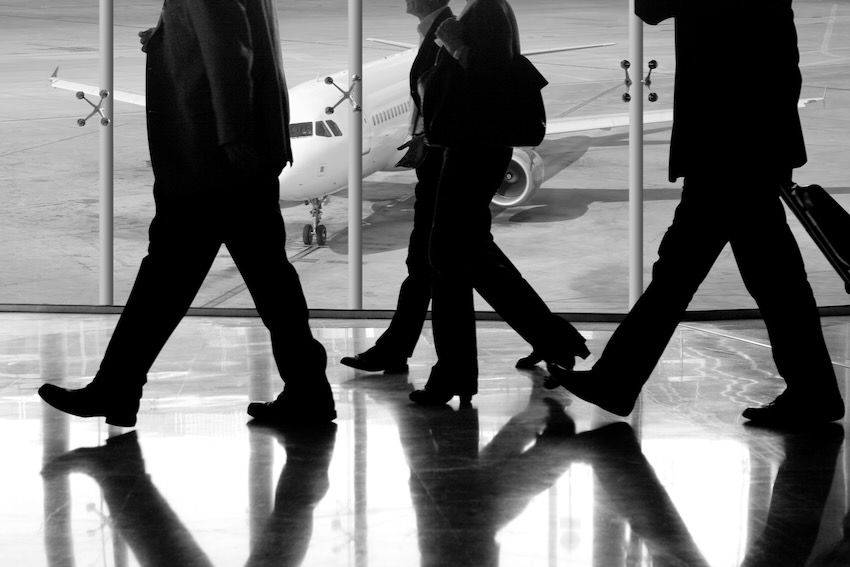
UK: SilverDoor, a global provider of serviced accommodation for the business travel sector, has shared insights from a round table with clients discussing the corporate travel and global mobility sustainability landscape.
SilverDoor’s head of communications, Victoria Jackson and senior client programme managers Al Butler and Amy Pammenter co-chaired the discussion and were joined by Siân Ellis, sustainable procurement lead for Ernst & Young LLP, Sophia-Bella Pinnock, sustainability delivery executive for Clarity Business Travel, Seb Hutchings, VP client services for relocation management company Graebel and Pete Richardson, head of sustainability and risk for accommodation and hospitality operator Edyn.
The panel looked at how operators, agents and clients are working together, what the challenges are, as well as what will influence wider adoption and realisation of sustainability goals in the future.
Variation in the availability and methodology of carbon emissions data across the travel supply chain and the continued focus on cost were considered the main obstacles for corporates striving to meet their sustainability commitments.
However, it was agreed as more data is collected the collaboration and integration of carbon emissions reporting between the travel supply chain and clients will better inform sustainability strategies.
Cost and data debate
SilverDoor found cost was seen as the biggest barrier to enabling businesses to achieve their sustainability targets, both within travel programmes and across their wider operations. Clarity’s Pinnock said “a lot of clients are still focused on keeping costs down.”
Edyn’s Richardson discussed how the changing geopolitical landscape is sharpening the focus on cost perhaps at the expense of sustainability for many business owners.
On a practical level managing costs was noted as the vital foundation to any business being able to operate and in turn being able to operate sustainably and while Trump’s tariffs hold back investment the reality is “you can only be a sustainable company if you are still a company.”
Alongside cost, fragmented data sets present challenges for corporates when working to establish a clear, consistent view of the environmental impact of their travel and operations.
Collaboration
There was a strong appetite around the table for carbon emissions data to better inform and progress sustainability initiatives.
SilverDoor’s Butler said: “There is a willingness to learn and understand what initiatives we have in place,” which was supported by Clarity Business Travel, which is developing carbon literacy documents, alongside training and engagement opportunities. EY’s Ellis also added that carbon data is used for sustainability “strategy and goal setting”.
Whilst carbon emissions data models are still being tried and tested, the panel acknowledged the need to be transparent. Edyn’s Richardson said: “A big part of sustainability is about transparency, and I don’t think you should be ashamed if you haven’t managed to hit your targets. (Companies might) just have to rethink what the target should be going forward.”
Greater collaboration and integration with the supply chain was also essential but should be underpinned by a degree of flexibility.
EY’s Ellis detailed that whilst the procurement team undertakes surveys to understand what a supplier’s sustainability goals are in order to identify how and where they align with EY’s own goals, it is also important to be realistic and recognise that no two parties’ goals will exactly align so what you can do is “adapt to have some flexibility.”
Future
As the collection and application of carbon emissions data increases, SilverDoor expects to see a growing appetite for carbon budgets and also carbon caps alongside rate caps as part of RFPs and policies. “We’ve had to stick with our rate caps. Yes, we’ve had to choose the best properties for them (clients), but they’ve also mandated that properties have to be providing their carbon calculator data.”
SilverDoor launched its carbon calculator in November 2023 for clients to “adopt a more forensic approach” when reviewing and understanding the environmental impact of the accommodation they choose.
The panel discussed the comparative sustainable behaviours demonstrated by Gen Z, characterised by an internet and digital-first generation growing up with greater awareness of environmental challenges. As this generation matures the panel agreed it will bear its influence more and more as businesses work to future-proof their operation through recruitment of a carbon-literate generation.
SilverDoor’s Jackson concluded that in terms of influence alongside the advance of Gen Z actioning a bottom-up approach, increasing government directives on reporting are also ensuring carbon data will remain front and centre in shaping future sustainability policies not just for the travel sector and its clients but for all sectors worldwide,
“Sustainability is an evolving journey requiring collaboration, innovation, and a commitment to continuous learning. As technologies advance and generational attitudes shift, businesses that remain flexible and open to new approaches will be in pole position to drive change that can make a real impact.”
In September we reported on SilverDoor’s client engagement day which showed clients wanted suppliers with key sustainability data.
SilverDoor clients opting for suppliers with sustainability data
Photo by Rob Wilson on Unsplash

